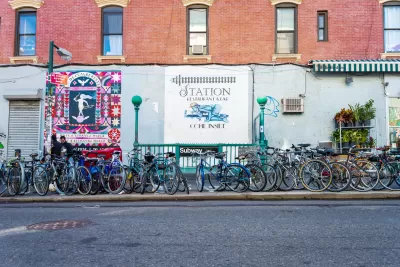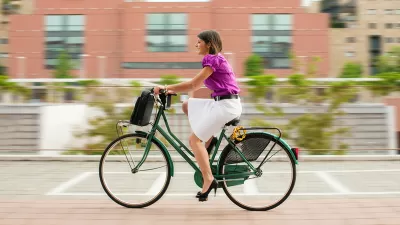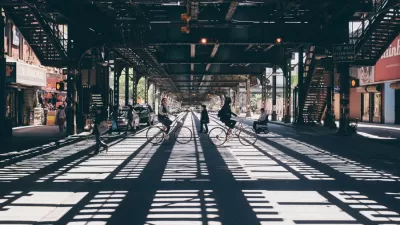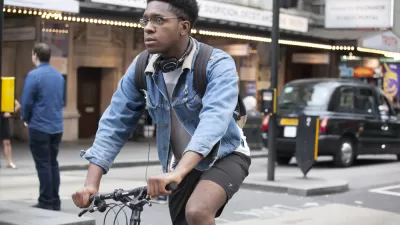Bike advocates focus, with good reason, on bike lanes and safe routes. But secure bike parking and storage plays an essential role in encouraging more people to get on two wheels.

Pointing to Paris's recently announced plan to make the city '100 percent cyclable,' which includes a promise to install 30,000 bike parking stands in the city, plus 1,000 reserved for oversized cargo bikes, and 40,000 spaces at rail stations, Kea Wilson reminds American bicycling advocates to look beyond bike lanes and safe roads to address the similarly important challenge of bike parking and storage. Wilson writes,
The availability of cycle parking is sometimes, but not always, factored into the methodology that leading organizations use to rank the most bike-friendly communities in the country; cities themselves rarely track how many spots they have in any systematic way, much less assess those spots’ quality, convenience, accessibility to people with mobility challenges, or effectiveness at preventing common crimes like theft.
While most American cities still have minimum parking requirements, only some have started to require bike parking in new developments. Yet the lack of organized efforts to provide secure bike parking, Wilson argues, may discourage people from biking at all. A report from Transportation Alternatives earlier this year came to a similar conclusion.
Meanwhile, the rise in the popularity of electric bikes–boosted by the federal infrastructure bill–means cities will have to consider bike charging as an integral part of the sustainable, electrified city.
FULL STORY: It’s Time for America to Talk About Bike Parking

Maui's Vacation Rental Debate Turns Ugly
Verbal attacks, misinformation campaigns and fistfights plague a high-stakes debate to convert thousands of vacation rentals into long-term housing.

Planetizen Federal Action Tracker
A weekly monitor of how Trump’s orders and actions are impacting planners and planning in America.

San Francisco Suspends Traffic Calming Amidst Record Deaths
Citing “a challenging fiscal landscape,” the city will cease the program on the heels of 42 traffic deaths, including 24 pedestrians.

Defunct Pittsburgh Power Plant to Become Residential Tower
A decommissioned steam heat plant will be redeveloped into almost 100 affordable housing units.

Trump Prompts Restructuring of Transportation Research Board in “Unprecedented Overreach”
The TRB has eliminated more than half of its committees including those focused on climate, equity, and cities.

Amtrak Rolls Out New Orleans to Alabama “Mardi Gras” Train
The new service will operate morning and evening departures between Mobile and New Orleans.
Urban Design for Planners 1: Software Tools
This six-course series explores essential urban design concepts using open source software and equips planners with the tools they need to participate fully in the urban design process.
Planning for Universal Design
Learn the tools for implementing Universal Design in planning regulations.
Heyer Gruel & Associates PA
JM Goldson LLC
Custer County Colorado
City of Camden Redevelopment Agency
City of Astoria
Transportation Research & Education Center (TREC) at Portland State University
Jefferson Parish Government
Camden Redevelopment Agency
City of Claremont





























